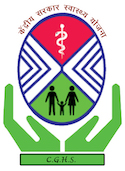Female infertility is an outbreak, all around the world. And polycystic ovarian disease or syndrome is the flag bearer among these problems. Therefore treating PCOD successfully is like treating 70% of Infertility. Certainly, if you are on this page, you are looking for the best information on this problem and also looing or treatment of the problem. We will discuss all the aspects of PCOS so that you can understand this disease completely. And will also share how Ayurveda treatment for PCOD can help you to regain your health.
PCOS or polycystic ovarian syndrome is a widespread endocrine system disorder (hormonal disorder). These are hormones which turn us in male and female. Where testosterone is high, it brings masculine characters. Contrary to this progesterone and estrogen brings feminine characters.
But in females with PCOS have male hormones increase in quantity. Thus brings the masculine characters in females. Because of excessive male hormone function of ovaries, get derailed. Their ovaries develop follicles (numerous small collections of fluid) and fail to release an egg regularly. Such females have infrequent or, in some cases, prolonged menstrual periods. This condition, if left untreated, leads to infertility.
In simple words, the polycystic ovarian syndrome is a disorder where at least two to three of the following condition occurs:
- Development of multiple cysts in ovaries.
- Altered balance of oestrogen and progesterone hormone.
- Delayed or absence of periods due to delayed or absence of ovulation.
- Ovaries produce more testosterone (male hormone) than normal.
Facts about PCOS:
- PCOS is one of the leading causes of menstrual irregularity, obesity, infertility, and sub-infertility in women across the globe.
- It affects about 1 in 10 females in their reproductive years.
- Females suffering from PCOS have hormonal imbalance as well as metabolism problems that affect theirs all over health and their appearance.
- More than 70% of ovulatory fertility issues are due to PCOS.
- More than 50% of females suffering from PCOS develop type 2 diabetes before 40 years of age.
- If left unmanaged, PCOS may lead to serious health issues such as heart diseases, diabetes, and blood pressure.
- PCOD may develop any time after puberty. However, many females find out that they have PCOS when and they find difficulty in conception and consults a doctor.
Sign and Symptoms of PCOS
Signs and symptoms of polycystic ovarian syndrome depend on the level of male hormone and menstrual irregularity.
The symptoms of menstrual irregularities include:
- Delayed periods
- Periods are absent for more than three months.
- Fewer menses than average.
- Difficulty in getting pregnant.
*In some cases, where menstrual cycle is not related to ovulation, there is heavy bleeding.
Symptoms related to an increased level of the male hormone are:
- Excess hair growth on body and face termed as hirsutism.
- Acne
- Thinning of hair
- Male pattern baldness
Other symptoms of PCOD includes:
- Skin discoloration
- Obesity
- Dandruff
- Oily skin
- Elevated blood pressure
- Depression and low self-esteem
*The symptoms of PCOS vary from female to female and may change over the years.
Causes of PCOS
The exact cause of PCOS is not clear. However, the following factors may play an essential role:
- Insulin resistance – Insulin resistance is common in females with PCOS. A high level of insulin interferes with the normal development of follicles. It is also responsible for obesity and increases the risk of prediabetes and type 2 diabetes.
- A high amount of testosterone or male hormone – Research shows that every 4 in 10 women suffering from PCOS shows an increase in the normal level of luteinizing hormone. An increase in the level of luteinizing hormone, in turn, triggers the ovary to produce the male hormone.
- Obesity – Excessive fat increases insulin resistance. Increased level of insulin in the blood contributes to more weight gain and a vicious cycle forms.
- Genetics – Study shows that polycystic ovarian syndrome may run in families. The chances of developing PCOS increases if any of the relatives such as mother, aunt, or sister suffer from PCOS.
- Low-grade inflammation – Females suffering from PCOS also suffer from a type of low-grade inflammation that stimulates the ovaries to produce more androgen. This condition can also lead to blood vessel and heart problems.
How PCOS Occurs
As a part of the healthy menstrual cycle, ovaries release an egg each month. In female suffering from PCOS. When there is an imbalance of reproductive hormones this impacts the development of the egg. Either ovary fails to lay an egg or the process delays.
Because of this, in turn, results in irregular or missed menstrual periods that lead to the following:
- Development of small fluid-filled sac or cysts in the ovaries
- Inability to get pregnant
- Unwanted changes in appearance, such as acne and facial hair, due to the high level of male hormones.
- The body is unable to use insulin efficiently and increases the risk of diabetes.
PCOS is a chronic disorder that can last for lifelong in the absence of appropriate treatment. If not managed, it may lead to the following complication:
- Infertility
- Pregnancy-induced high blood pressure
- Premature birth
- Miscarriage
- Liver inflammation due to accumulation of fat cells in the liver
- Sleep apnea
- Prediabetes and type 2 diabetes
- Anxiety, depression and eating disorders
- Abnormal uterine bleeding
- Endometrial cancer or cancer of the uterine lining
*Unmanaged PCOS leads to metabolic syndrome. Metabolic syndrome is a cluster of conditions that include abnormal cholesterol, high blood pressure, high blood sugar, and increased risk of heart disease.
Ayurveda about PCOD
There are many references to the menstrual cycle and its physiology and pathology. These references are scattered all over the original text of Ayurveda. Hence we need to look on these references with one point and that’s to solve the problem. Ayurveda talks and speaks with the language of Doshas and Dhatus, thus we need to know the same terminology.
But before anything, the menstrual cycle is detailed as “Aartava” and whatever references we took for Ayurvedic treatment of PCOD relates to the same concept.
Doshas involved with Menstruation
It is hard to sum-up which dosha is directly related to the process of menstruation. Every dosha is involved with the process.
- Vata is responsible for: start of menstrual flow.
- Pitta brings the blood to it.
- Kapha pacifies the flow.
So in one word, all the doshas involve with the process of menstruation. Because Vata fails to initiate the flow and Kapha holds it back; therefore these are both Vata and Kapha which are important to consider for the PCOS problem.
Because reproductive system works in direct relation with Vata dosha, therefore it becomes more important to look at Vata Dosha. But when we check the causes, most of these remind us about Kapha Dosha. These might be obesity, insulin resistance or male hormones- all of these indicates towards Kapha dosha only. Hence, again we need to consider the Kapha Dosha for Ayurvedic treatment of PCOS.
Which Dhatu we need to restore
Aartava is a subdomain of Rasa. Rasa is the first and foremost thing that comes from food. Therefore the menstruation directly relates to the food and the first level of nutrition.
The approach of Ayurveda about PCOD: Finally
Vata is unable to initiate the process of menstruation. Because Kapha is interfering with the process and delaying it. This happens commonly because disturbance is very subtle on the level of food. We change our food and it reflects on the reproductive system.
This simple Ayurvedic understanding can be translated into results when calculated properly. The treatment approach for PCOS we follow is according to the same calculation.
Approach to Ayurveda Treatment of PCOS
Western medicine does not promise to cure PCOS. Conventional treatment for PCOS includes hormonal therapies and birth control pills to regularise your periods and increase fertility. Besides, there are several cosmetic procedures to remove excess hair. In other words, western medicine aims only at controlling the symptoms of PCOS.
Ayurveda, on the other hand, provides a multidimensional treatment and gives the best curable effects.
Without changing lifestyle no treatment is possible with Ayurveda. Therefore your mindset should be according to that before going for the treatment of PCOS with Ayurveda. The four-point, treatment approach we follow for PCOD is here-
- Balancing the doshas.
- Lightening up the fire
- Balancing the hormones
- Removal of excess doshas
All these might be required in some cases but in others, one or two steps can help. The main rule to decide the treatment is two- chronicity and severity of the case. How do we do this
Balancing the Doshas
Increase, the decreased one, open up the trapped and if something needs to be done with balancing two.
These things go hand in hand. And this is something very important to do. This is the first step to make sure the working of the body. As long as physiology will be good, the chances of disturbing pathology will be less.
This we can do after taking a completely personal and menstrual history of the patient, along with pulse diagnosis.
Lightening up the fire
Ayurveda believes that good metabolism is the key to all the proper activities of the body. Agni represents the metabolism. A healthy metabolism helps the body to curb everything bad.
Years before this recent awareness of insulin dependence, slow metabolism, Ayurveda recommends that Rasa- the direct assimilation of food helps with the normal menstruation. Thus, it is important to consider this. Hormone therapy can induce the periods for a few circles but cannot rectify the whole system.
Once we can balance the metabolism, things will get better permanently.
Balancing the hormones
We all know PCOD is all about hormones. Therefore it is important to work on these. But at Sukhayu we consider this as a second last resort. Because this is not advisable to play with the hormonal system. We should give the body’s internal healing capacity to rectify the things. When we cannot restore these hormones, we go for certain treatments to help the body to restore hormonal imbalance.
Hence, we use medicines and panchakarma procedures accordingly.
Removal of Excess of Doshas
Panchakarma is the last tool in treatment. When the PCOD condition is chronic and is complicated. There is an importance to remove the deep-seated doshas from the body. So that we can rectify the whole system and that too permanently.
Generally, few patients come to us with PCOD because they have infertility. In such cases, it is important to assure immediate results. Thus we choose the last line of treatment because of the urgency of treatment.
How do we proceed with PCOD treatment at Sukhayu Ayurved
At Sukhayu Ayurveda the treatment and therapies towards the management of PCOS depend on the specific health of the individual patient. The personalized approach re-balances the female hormones, boosts metabolism improves all over health and wellbeing. Besides, it helps in weight loss, treats acne, and reduces facial hair growth naturally.
This is a call from our gynecologist Vaidya Neetu Sharma, to decide the course of the treatment. Here are a few steps, we do-follow-
- Complete assessment of the patient
This is very much important to assess the patient in detail. Because without understanding the patient, it is not possible anyway to understand the proper condition of the patient. We follow-- Personal history
- Medical history
- Menstrual history of the patient.
- Diet and lifestyle details of the patient.
- Did panchakarma require or not for PCOS?
This is a question where the answer all depends on the assessment of the patient. When a patient needs Panchakarma, she needs to go for this and where we can do the treatment with medicines same is conveyed to the patient. - How long do ayurvedic medicines for PCOD continue?
There is no thumb-rule. It depends on the patient’s condition and the chronicity of the patient. In most of the cases, the medicines continue for 5 to 6 months. It largely depends on the patient how “religiously” a patient follows the guidelines about diet and lifestyle.
For a personal consultation with Dr. Vaidya Neetu, please fill the appointment form and share the details. If we have details before your consultation. This helps us to do our home-work and helps you in a better way.













